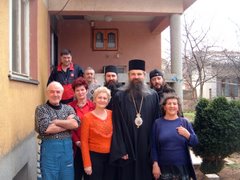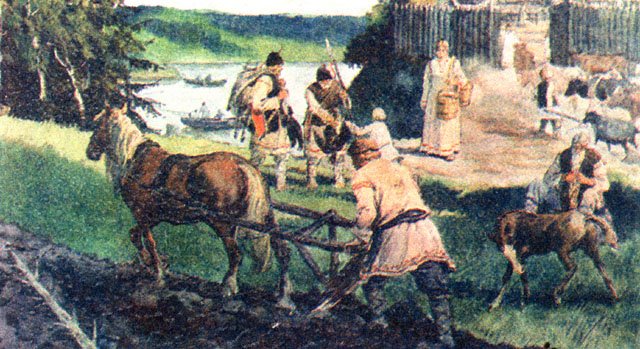Albanians Told To Consider the Rights of Orthodox Christian Serbs
27 July 2006
Why is America so hard-hearted against the Serbs?
Folks may not not be aware that the history of the Serbian peoples are being distorted by renovationist historians who forget that the current victims in Serbia/Kosovo-Metohija are descendents of the Serbs that survived brutal persecution during WWII. The current oppressors are also descendents of the oppressors of that time as well. Maybe we should look upon them as victims. They are victims of the lies that they believe and maintain concerning the past they try to erase, they are victims of the misinformation that they give to the world, painting themselves as modern day revolutionists styled after the colonies of the American succession from Britain; yet there is no true comparison, just a draping of oneself into a language that helps the wolves to justify their involvement in a situation as the Albanians sell every resource they have to those who promise to them independence.
In the summer of 1941, Hitler, enraged because Belgrade refused to align itself with the Axis powers; postponed his intentions concerning Russians and determined to exterminate from the face of the earth all Christians Serbs, along with the Jews and Gypsies that he was annihilating. Dachnau was a concentration camp that saw the death of many Christian Serbs. Eyewitness accounts include St. Nikolai Velimirovic. He was a prisoner. When Hitler finally turned his attention to Russia, more than 2 million Serbs had been cleansed from the face of the earth. But that sacrifice brought on the defeat of Germany, for when its forces were invading Moscow, severe winter forced the the retreat of the Third Reich. Historians, according to sources on TSERKOVOST.org have deemed this defeat by Russia and its winter the turning point of WWII. Since the time of the conquest of Serbia by the Ottoman Empire up to and beyound the alliance of the Young Turks and the Nazi Regime (the Utaashi led by Ante Pavelic) the Christian Serb population have lived by law and by societal customs as second class citizens subjected to the same indignities as Chinese, African , Mexican and Native-americans during different periods of United States history. Even such ethnic groups such as Italians and Irish have had to endure second class citizen treatment at the hands of the country that offered solace for the weary. The Christian Serbian population has suffered these indignities in horrific degrees for 600 years and this is why Serbia is doing all it can to protect the now minority population of Serbs in Kosovo:
Kosovo Albanians urged to improve rights of Christians
July 27, 2006 7:51 AM
PRISTINA, Serbia-The U.S. envoy to the Kosovo status talks on Thursday urged ethnic Albanian and Serbian leaders to intensify efforts to improve the rights of the province's Serb minority.
During a visit to Kosovo, U.S. diplomat Frank Wisner said the two former foes need "to put in place a common vision, a practical and a realistic solution to the way forward for Kosovo."
Wisner met with the province's ethnic Albanian leaders a day after he appealed to Serbia's leadership for flexibility and compromise in resolving the dispute over the breakaway province.
Ethnic Albanian and Serbian leaders met in Vienna, Austria, on Monday for the first face-to-face talks over Kosovo's status.
There was no breakthrough in those talks, with both sides entrenched in their positions, the Serbs want Kosovo to remain within its borders, while the ethnic Albanians insist on independence.
"The job ahead of us today is to put in place the necessary elements of a final status package before we define the package," Wisner said. "That means realistic solutions to the outstanding issues of municipalities, churches, minorities and economics."
He also reiterated that Western countries supervising the process aim to resolve the province's status by the end of the year.
Most of the discussions since talks began have failed to produce a concensus.
The next round of talks is Aug. 7-8 and will deal with local reform and minority rights, a U.N. official said.
Kosovo has been run by United Nations and patrolled by NATO since mid-1999 when alliance's air war halted a Serb crackdown on separatist ethnic Albanians and forced Serbia to relinquish control over it.
Some form of independence for Kosovo is the most likely outcome of the talks, but Western envoys are trying to steer the two sides toward improving the rights of the province's Serb minority, who live in guarded enclaves.

















